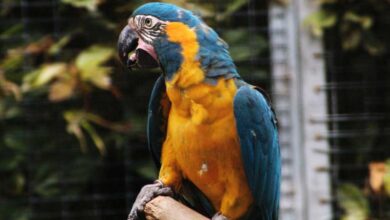How to Teach Your Macaw to Talk?
So you have recently brought home a new feathered friend. A commonly shared goal of a bird keeper is to teach their macaw pet to talk. Teaching them to talk isn’t just a fun party trick but an amazing way to build a bond with your feathery sidekick.
Yet, it is the most difficult part as a parrot owner. This is a demanding task. You must devise ways to persuade your pet to imitate new sounds. The Macaw will learn to talk only by imitating what they hear. To help them practise certain sounds, you have to repeat phrases and words, over and over again. They are more likely to mimic and remember certain words they hear often.
Table of Contents
Now, it’s time to think about it realistically. Because it’s not always as smooth as it may seem like smooth sailing. The birds are not like robots, and not every chirp will get into a crystal-clear “hello.” Your bird can surprise you if they are thriving in an environment where there is consistency, patience, and little humor along the way. You will forget all the difficulties when you hear your bird answering the doorbell even before you open your mouth!
This guide has got your back with simple steps to get started and maybe a few laughs in between. Let’s get into it.
Factors Influencing a Pet Bird to Talk
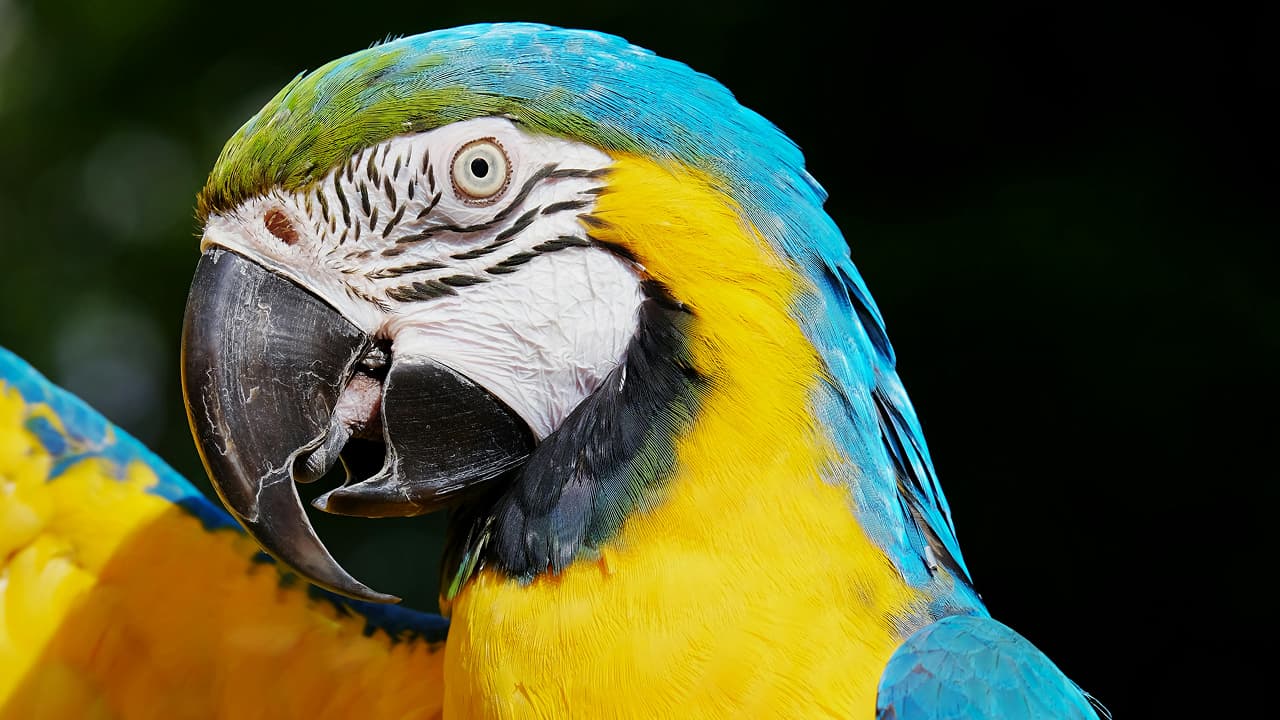
Not all macaws are chatterboxes, and that’s pretty normal. When it comes to macaw talk, there are a bunch of different things that come into play affecting your parrot’s vocalization ability:
Species
Some macaw species, like the Blue-and-Gold Macaw or Green-winged Macaw, are natural mimics. If you’re hoping for a bird that holds a “conversation”. Try to choose specifically those species that have a reputation for speech. Thus, it is a smart move.
Age
Age is another major factor. Younger macaws are like little sponges because they absorb words and sounds faster than older people. Older birds can still learn, but they might just take a little extra time and repetition.
Socialization
Then there’s socialization. Those birds that have more human interactions are more likely to mimic the sounds. They have chances of getting one-on-one attention and hearing conversations, which makes it easy for them to pick up words.
Preparing for Training
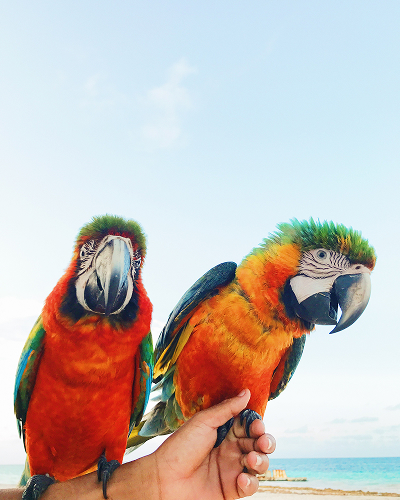
Before we get into its training process, it is important to navigate the foundation. Think of it as if you are prepping for a class. Ensure you have the following before you start preparing your parrot for the training:
A Quiet Environment
These parrots get distracted easily by loud noises in their background. Minimize background noise to give them a calm space and help your bird focus on your voice, actual words, and tone.
Regular Interaction
Spend quality time with your bird every single day. Not just sitting near the cage, but talking, making eye contact, and engaging. Birds are super social, and the more time you spend together, the more your macaw will want to “join the conversation.”
Consistent Routine
For creating a sense of security and predictability, you need to establish a training schedule. Having a consistent routine can be a great option as it works wonders. A sense of structure and safety is created by sticking to a regular training schedule.
Effective Training Techniques
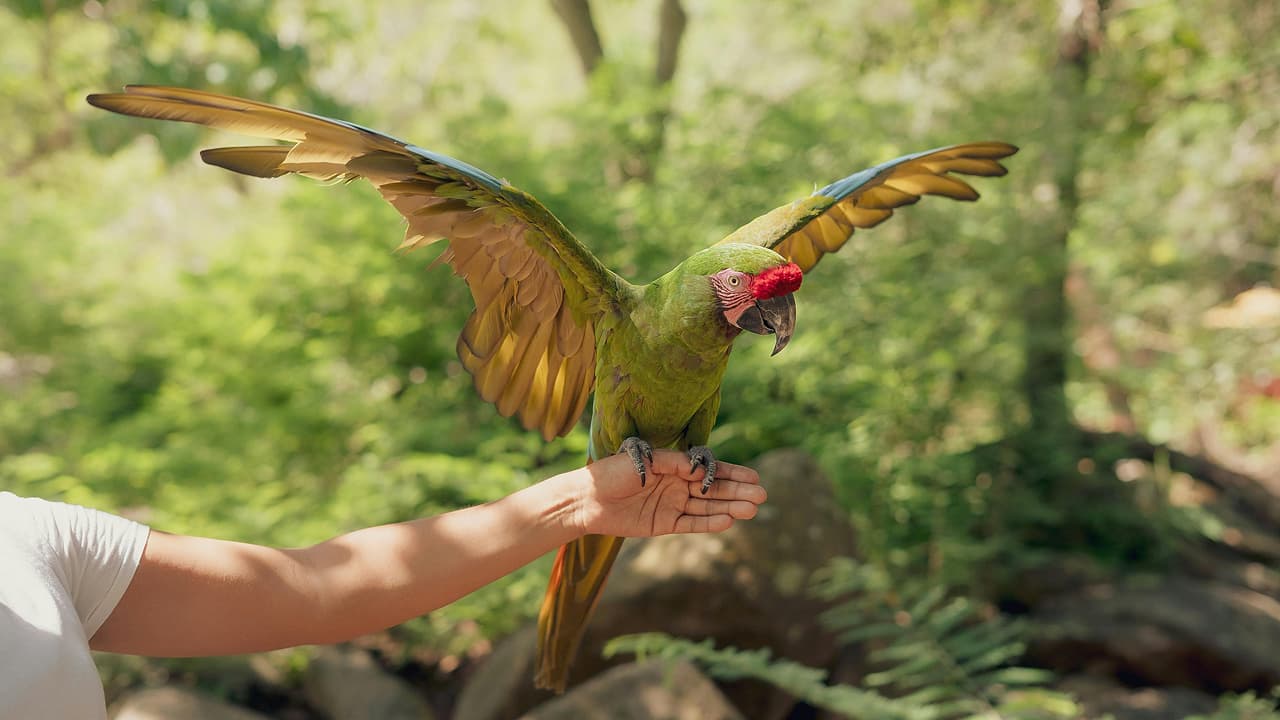
The training techniques you apply to your macaw pet to talk make a huge difference. But the question is how. Let’s just break it into a real, no-fluff way!
Start with Simple Words
In the beginning, try to use simple and commonly used words like “hello,” “bye-bye,” or your bird’s name. Macaw talk usually starts this way, as a talking macaw parrot will make a great start, as they often use words. Birds have this ability to mimic words that they hear most of the time, so try using easy words in front of them initially.
Repeat Regularly
Your consistency is the key. Repeat the chosen words clearly and frequently during interactions. Repetition is your best friend. Do not expect a miracle in return for spoken words used once or twice.
You’ll have to repeat these words throughout the day. Try to do it especially during the direct interactions with the bird. Say the word with enthusiasm and clarity; it keeps your bird interested.
Use Positive Reinforcement
Reward your bird immediately after it attempts to mimic a word, even if it’s not perfect. Now comes the real magic of positive reinforcement and its effects on your macaw parrot. Right after your parrot attempts, even if it’s just a similar sound, reward them instantly.
It can be a tasty treat, a favorite toy, or verbal praise, saying excitedly with a “good job!”. This helps them associate speech with something good. Each time your pet bird steps onto your finger, give them a treat, even for only a brief moment.
Words with Actions
Then we have a common yet proven method of training short words and phrases. The method comprises the association of words with actions or objects. Choose specific words commonly used in daily activities, such as “bath” during misting or “good night” at bedtime. Try to associate words with actions. Helping the bird understand the context of the words you speak to them.
Limit Training Sessions
Keep sessions short to prevent fatigue and maintain the attention of your bird. The training sessions must not exceed to more than 5 to 10 minutes. Because a bird has a short attention span. Thus, it is better to train them in bursts than wear them out.
Be Patient
Finally, be patient. Some birds catch on quickly, others take their sweet time. Even if they may take months or even weeks, every little attempt is progress. Celebrate small progress and remain consistent.
Don’t Pressure
We as humans have good and bad days when it comes to learning, and so do birds. If you see your bird seeming tired or not interested at any given time. Then, you need to take a break. You can try again on another day, instead of getting frustrated. Don’t push yourself too hard on them.
Common Challenges and Solutions
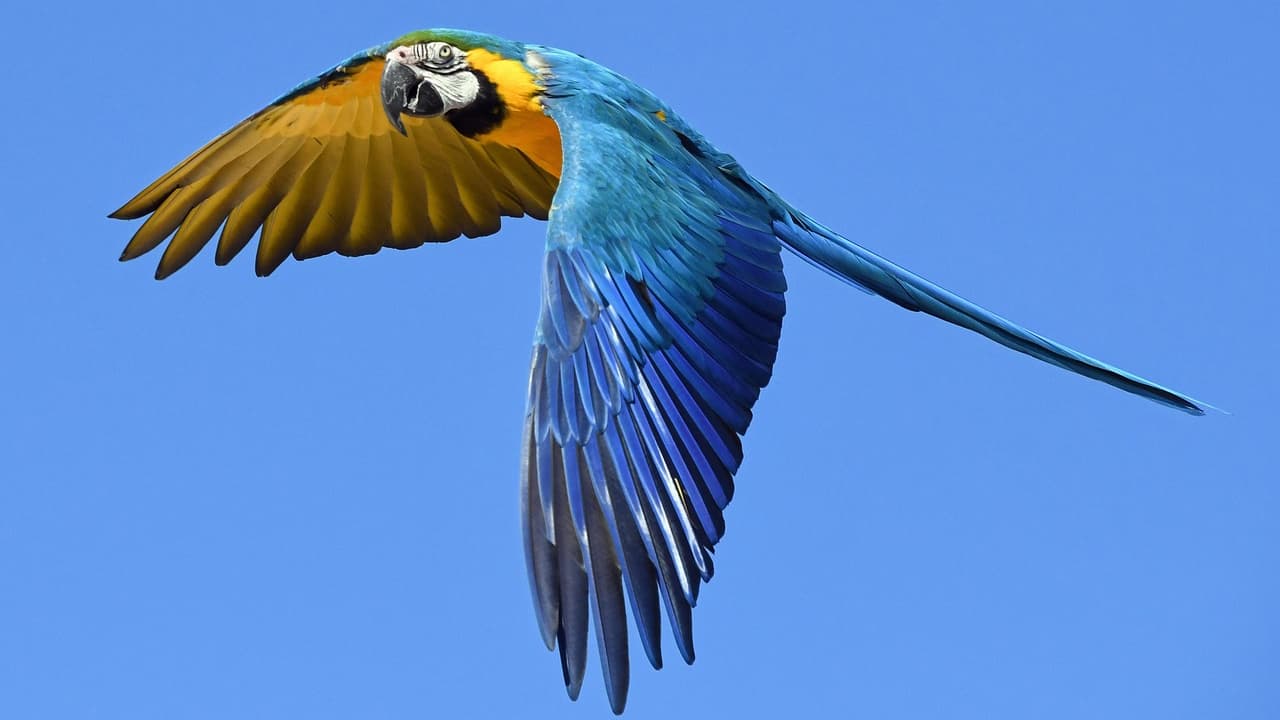
Although you are following all the right steps, you’ll still come across a few bumps in your teaching period. These common challenges are discussed with possible solutions here, and understanding them is an important part of overall macaw maintenance.
Lack of Interest
One of the biggest issues bird parents face is a lack of interest in them. Your bird sometimes just is not in the mood, and that’s okay. It doesn’t mean that the macaw is never gonna talk. If your bird seems uninterested, it is suggested to mix things up by switching them to a different time of day or utilizing new treats or toys in their training environment. Adding or experimenting with different approaches can reignite your bird’s interest.
Mimicking Unwanted Sounds
The birds may even pick up and mimic unwanted sounds sometimes. The exposure of these sounds has a reinforcing impact on them. These sounds can be any phone ringtones or even curse words that can be mimicked if heard by them.
You Might Like to Read: Red-Shouldered Macaw
The solution that may work for this is to avoid reacting to it and give your attention more towards the words you want them to mimic. Simply reinforce the positive and ignore the rest. Also, try to minimize their exposure to these undesirable sounds.
Inconsistent Speech
Suppose you are observing your pet bird that is showing inconsistent speech. Then, what you can do for them is to increase the frequency of training sessions while making sure to provide consistent reinforcement. Reward them with good stuff every single time they make an effort. If somehow you skip days or forget to reinforce, it may stop them from trying.
Maintaining Your Parrot Speech
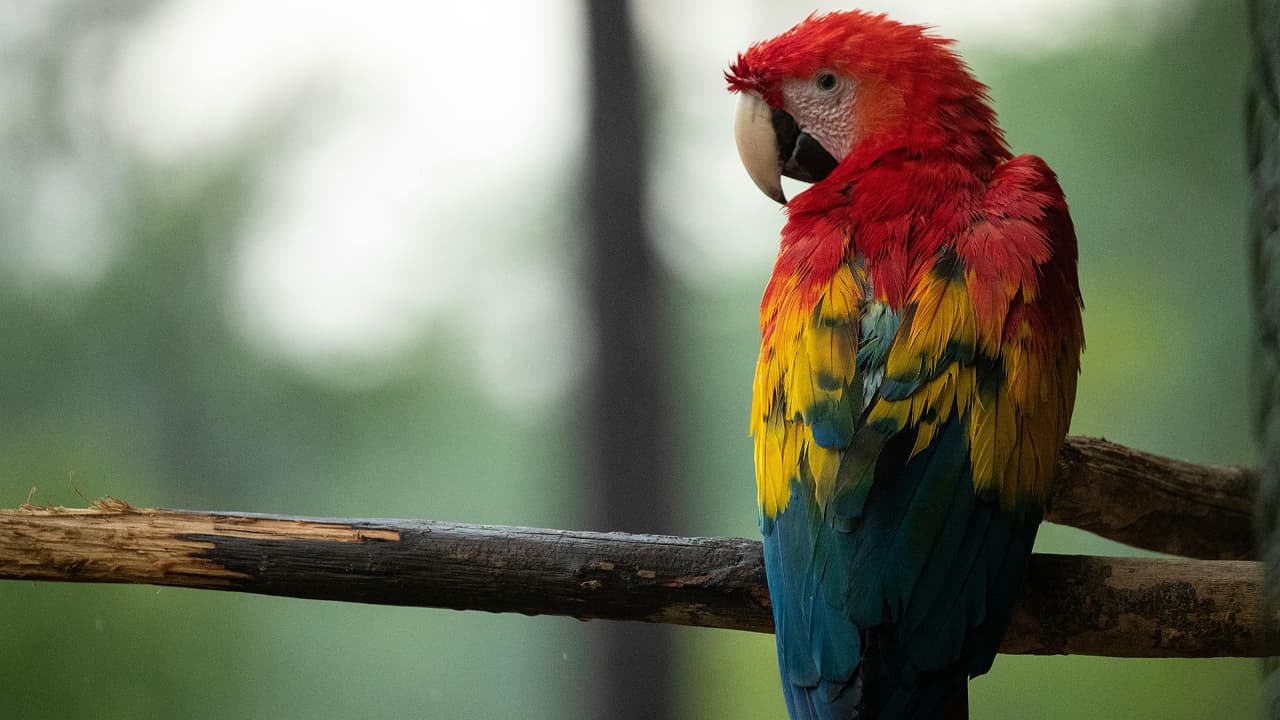
Just keep a check on maintaining the verbal skills of your bird. This is how you can sharpen their verbal skills once they have started picking up words. Here is how you can:
Regular Practice
Give them time by including regular practice in their daily routines. Start this habit of regularly practicing vocabulary with them. Keep chatting with them daily. To keep their vocabulary active, you need to use familiar words in front of them. These words should be incorporated at different times of the day. It may include the morning, before bedtime, and even during feeding.
Introduce New Words Gradually
Once your bird has mastered certain basic words, gradually introduce them to learning new ones. This will enhance their vocabulary. Don’t try to make it overloaded for them with five new phrases at one time. First, stick to one word and use it consistently in different settings to make him familiar with it, and then jump towards new phrases or words. Go slow and patiently.
Engage in Conversations
Engage your bird in conversations that help boost and encourage them to communicate. Respond to them even for the small attempts they make at speech. This is a two-way communication that helps them feel heard and ends up with more vocal behavior from them.
Provide Enrichment
Lastly, provide mental stimulation. Macaws are incredibly smart, and they stay active to fulfill their needs for enrichment. You can keep their mind engaged by using mirrors, talking toys, and even playing soft music with them. A bored bird is less likely to talk, so keep things interesting and fun for them daily.
The last point for maintaining their verbal skills intact is providing them with mental stimulation. You can stimulate their mind and promote vocalization by providing them with toys and activities.
When to Seek Professional Help
Despite all your love, creative tricks, and consistency from your side. Though your macaw still struggles with talking or shows even signs of frustration/stress. In cases like these, it’s pretty normal to happen to seek guidance from a professional, more likely a certified bird trainer or an avian behaviorist.
These professional trainers help to assess the underlying behavioral or health-related issues that are holding your bird back. You should be vigilant enough to detect early behavioral signs displayed by your bird.
Related Pick: Food for Macaws
Thus, if your bird seems like withdrawing, unusually getting quiet, or showing behavioral changes (aggressive outbursts or feather-plucking). The reasons behind the behavioral changes could be stress, boredom, or discomfort.
A professional input will help you gain a better understanding of your bird’s needs. It also helps in creating a customized plan for things like enrichment, bonding, and speech training more possibly. Not a failure, but it’s just another step in making it possible to give your feathered friend the best life.
Conclusion
Macaw talking requires repetition, love, and a lot of patience to train them. It is not just teaching them a trick; it’s building a strong connection between you and your pet bird in learning each other’s language. These birds also have emotions similar of other people, and they can even sometimes not feel like talking. So, be patient in teaching your macaw parrot to talk; it should be fun for both of you! Don’t neglect or see them as an additional burden. Try not to break the little beauty’s heart.
